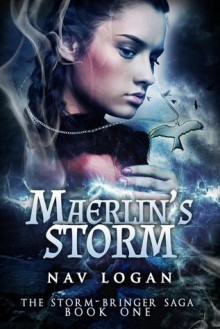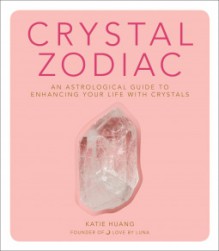
In the aftermath of Zero Sum Game, Cas and her associates are seeing the fallout from taking down those telepaths who've been reigning in expressions of human corruption, and it's not pretty. So, she takes it upon herself (with a little help from her friends) to fight crime in LA -- à la that rich guy in Gotham, that lawyer in Hell's Kitchen, or the sole survivor of the Cavendish ambush of the Texas Rangers. She's making a difference, but not as much as she wants, until she decides to take a more proactive approach.
I'll skip the details, but what she comes up with (and talks her team into helping with) is a combination of technology, psychology and her genius. It's so successful that every major criminal figure in LA would happily kill her several times over if they only knew what she was doing and who was doing it. Of course, many of these people are former/potential future customers. This little dance she does, while trying to get the goods on one player in particular, is a whole lot of fun to watch.
It's also fascinating watching Cas' develop a conscience, and then let it take her in ways that bring her into conflict with her team. They go along with her, but with reservations. In many ways, she's grown from the woman we met in the opening of Zero Sum Game -- but in so many ways she hasn't. The heavy drinking she indulges in/retreats to testifies to that.
One thing that happened at the end of the previous novel was that a telepath triggered something in her -- how much of an effect this had, or whether it was time, or something else (probably a combination of the three) has loosened something in her subconscious. Memories -- partial, confusing, scattered -- are coming back to her -- from a time that Cas had given up on ever remembering. The memories come back, unbidden, at the worst possible times and make her vulnerable when she needs to be focusing. They also point to mysteries, questions and so many unknown things that Cas decides she's not going to acknowledge that this is problematic for her, her work and those who depend on her.
My problem is that I think Huang overestimated how interested people were in Cas' background and trying to learn about it/deal with it. Maybe it just feels that way to me because I can't muster up the level of enthusiasm that the novel seems to want me to have, and everyone else will be hanging on every word. What Cas is going through has roots in the conclusion to Zero Sum Game and in her murky past. Instead of dealing with the memories and issues they raise, she spends most of the novel running from the problems, not in denial, just in a refusal to work through them -- until she can't any more (and even then . . . ). If I knew her better, if I was given more of a reason to be curious about her past, I think this could be a very interesting plot line But we don't, and we're not -- and I had a hard time getting above the level of mild interest in this part of the novel. Which isn't good -- because this is what the novel really wants to talk about, not Cas' innovative solutions to fighting crime.
For people who haven't read Taylor Stevens' Michael Munroe novels, this paragraph won't do much for you. You should read those, by the way, if you like Cas Russell. In the second book in this series, The Innocents, Stevens takes Munroe -- her complicated, almost impossible to believe, hyperviolent protagonist with a self-destructive bent (hmmm, who does that sound like?) -- and has her deal with some of her problems, taking a deep dive into her psyche at the risk of the job she's taken on -- and the innocents she's supposed to be rescuing/saving. I'd liked Munroe in her first book, and continued to, but I struggled getting through that book -- but once Munroe had dealt with (in some way) what was getting to her, she was a stronger and more interesting character. I cannot tell you how often while reading Null Set that I thought back to The Innocents. True, very different books, different problems plaguing the protagonists -- but their reactions to the issues and how they intend to deal with the problems raised, remind me greatly of each other. I'm hoping what comes next for this series is as strong as it was for Stevens'.
Everything else about this novel was just as absorbing and captivating as Zero Sum Game. The supporting characters were, if anything, more interesting than they were last time -- and the two new characters in Cas' circle were welcome additions. The ethical dilemma posed by Cas' actions was pretty interesting, and a good twist on the similar conundrum posed in (and, arguably, less clear -- although, I'm with Checker in not seeing it that way). The characters' reactions to her plans (and carrying them out) seemed authentic and not just something to create drama. If Huang had wanted to and just dialed back the A-Story and dialed up the B-Story, I'd have been more enthusiastic about this -- probably as much as I was about Zero Sum Game, maybe moreso.
And you just cannot beat Huang's combination of math and fight scenes -- others dabble in it, but most don't go as far (they're probably not that good at math) or do it as well. I don't know why these scenes work so well for me, but I just love them. Think of River Tam wielding a gun in "War Stories" -- but if she was able to tell you what she was doing and why without sounding a little . . . well, River-like. I'm not doing a great job of describing it, but it's hard. But if Huang decided she just wanted to publish a novella or two that really just consisted of fight scenes without a whole lot of plot? I'd be all over them. Nothing against plot or characters, but sometimes they just get in the way.
I did like Null Set -- just not as much as I expected to, or wanted to. But I'm still in for more of this series. What Huang's set up for the next novel (or more) -- really has my interest. The possibilities for book three have really got my curiosity churning. Having (somewhat/largely) dealt with these issues around Cas, the door is wide open for what comes next -- I literally can't wait. This isn't what I wanted from the second Cas Russell novel, but it's good -- and will likely be a strong foundation to build on. Recommended.
Disclaimer: I received this eARC from Macmillan-Tor/Forge via NetGalley in exchange for this post -- thanks to both for this.

 Log in with Facebook
Log in with Facebook 











